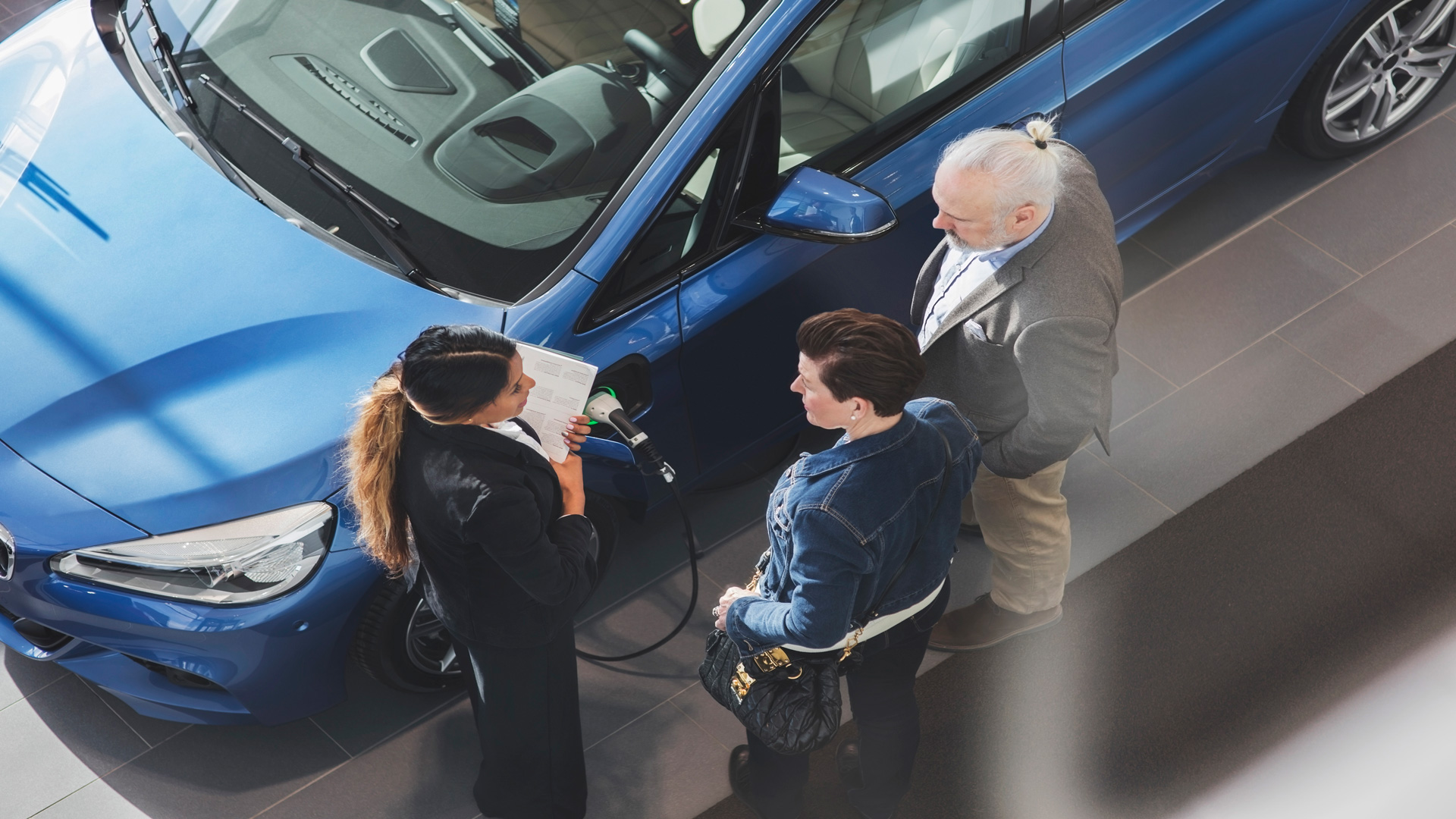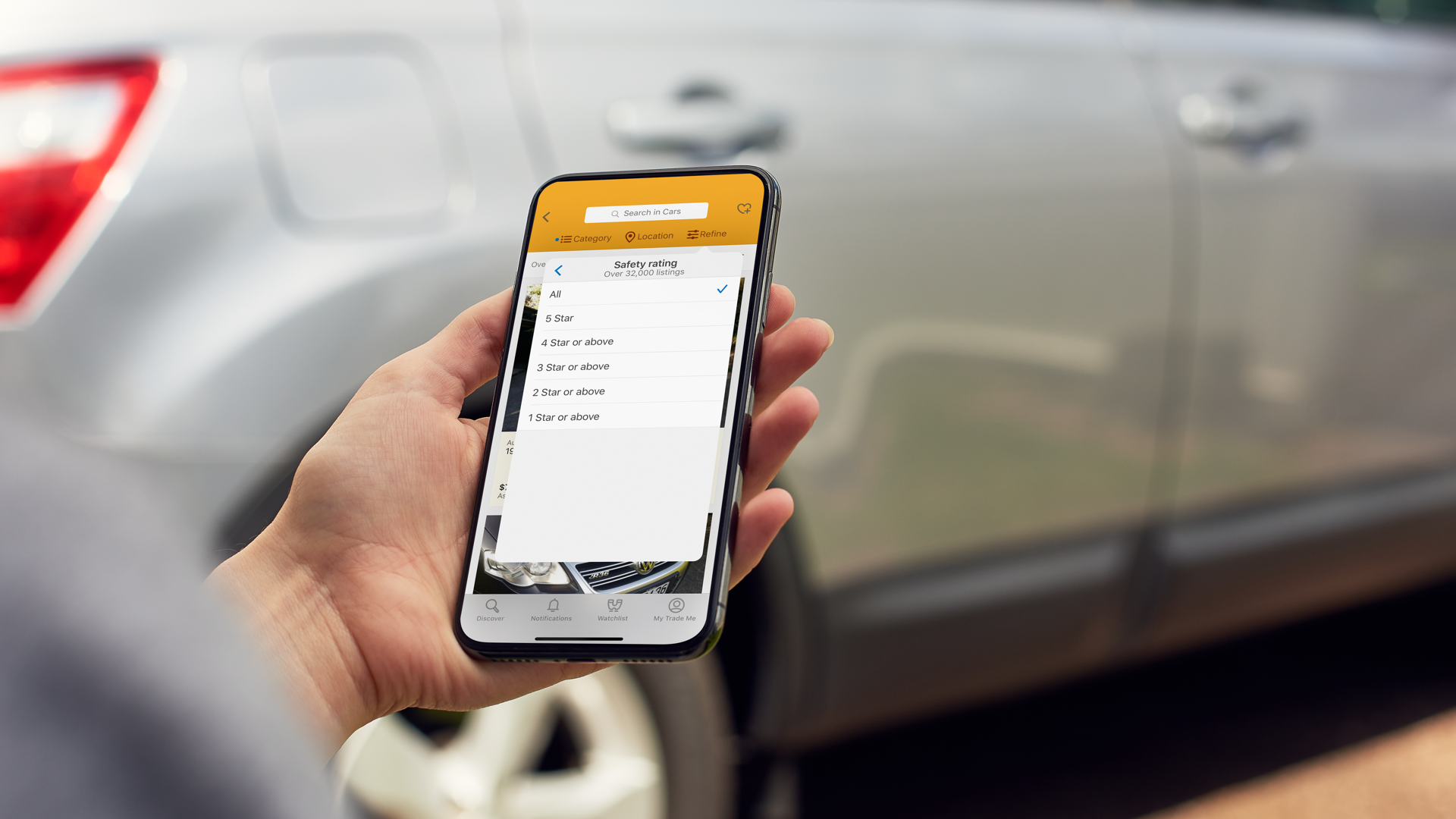Feature article
The top 5 factors to consider when buying a car
Let's take a look at the 5 most important things that you need to focus on when choosing what car to buy.
If you’re considering buying a car, there are loads of different things to mull over in deciding what’s the right vehicle for you and your potential passengers. This makes it easy to get lost or overwhelmed by the process, so we’re here to help by guiding you on what are the five most important factors you need to consider when choosing a car. Let’s get started.
1) Safety
This is arguably the most important aspect to consider when choosing what car to buy. You want a vehicle that you can feel confident about keeping you and your passengers safe in and should look to buy the safest car your budget will allow. So, how can you learn whether a car you’re considering buying is safe? Safety ratings are key and here’s what you need to know about them:
There are three key sources for safety ratings for vehicles – the the Australasian New Car Assessment Program (ANCAP), the Used Car Safety Ratings (UCSR) and Vehicle Safety Risk Ratings (VSRR). UCSR and VSRR ratings are calculated by analysing used car crash data over a number of years on the roads of New Zealand and Australia. ANCAP ratings are based around a series of ‘laboratory’ condition type crash tests on new cars.
The safety rating of a vehicle can change over time, so it won’t always have the same rating as when it was new. Checking the safety rating for the car you’re considering will allow you to buy with the confidence you're getting a safe vehicle and one likely to protect you and your passengers from the worst effects of a road accident.
The great news is that Trade Me now allows you to search car listings specifically by safety ratings – further empowering you to choose the safest car possible, within your budget.
2) Ongoing cost of ownership
When buying a car it’s important to consider the likely ongoing costs of ownership – just because the upfront cost is acceptable, the costs for running and maintaining the vehicle over the longer-term might prove prohibitive. Ongoing expenses you can expect include:
- Depreciation – just because you lay down a substantial amount on a vehicle doesn’t mean it’s going to maintain that value. In fact, if you’ve bought a new car, the second you drive it away from the dealership it’ll be worth approximately 10% less than it was before you bought it. Ouch! On average, you can expect it to depreciate in value by around 15-20% per year.
- Filling the tank – that lovely big power SUV might seem like a great idea at first, especially if your budget can stretch to the upfront asking price, but the ongoing costs of filling the huge tank might soon prove challenging. Whatever car you’re considering, you need to check out its fuel economy rating to make sure you’ll be comfortable with the expense of filling it up.
- General vehicle maintenance – how much of a maintenance money pit your car is will be affected by things like its age and condition, but you should expect to spend some money occasionally on maintaining its road worthiness. At the very least, you’re going to need to change the tyres once they’re worn out beyond the legal limit.
- Repairs – no matter how well maintained your car is, every now and then the need for repairs can strike, either as a result of an accident, or an unexpected component failure. When considering your car options, it’s a good idea to factor in the probable cost of repairs and how expensive any replacement parts will be.
- Insurance – insurance costs vary quite dramatically depending on the nature of the car. While it’s not a legal requirement in NZ to have your car insured, it’s strongly recommended that you do so or, in the event of an accident or malfunction, you could end up with some hefty one-off payments. When mulling over your preferred vehicle choices, remember to look into the likely insurance cost for the car before you buy.
- Registration, vehicle licensing (rego), WoF – you’ll need to pay to register the vehicle and every six or twelve months (depending on the age of the car) for a WoF ensuring the road worthiness of the car. If you opt for an older or more unreliable vehicle, you can expect the annual maintenance/repair costs flagged up by the WoF to be a little more substantial.
- RUC – all diesel-powered cars need to display a current distance licence on the windscreen showing up to date payment of road user charges (RUC), or mileage. How often you pay for RUC depends on how far you drive, as you buy the licence in 1,000km units.
3) Quality of build
When weighing up your next car options, pay attention to the build quality of the vehicle and it’s likely durability over the coming months and years of ownership. You want a car with excellent workmanship and stability, featuring car fittings able to stand the test of time.
Your car should have hard wearing durable plastics, evenly constructed shut lines (the doors, boot, bonnet, fuel cap etc), quality metals, proper sound and water insulation in the cabin, decent quality paintwork, and a good standard of finishing details – the welded areas and joints.
A car with a high quality finish will experience fewer overall problems such as paint peeling, rubber seals wearing, irritating rattling noises etc. You’re almost certainly going to use your car often, so you want confidence that these items will withstand all of the (reasonable) punishment you’ll give them.
4) Reliability
If you’ve ever been unlucky enough to own a car that was in constant need of repair, you’ll appreciate why reliability is such a key factor. The frustration and inconvenience of regular breakdowns soon gets old, reduces the pleasure of ownership and adds an unwelcome additional financial burden. You want a car that you can count on.
In particular, you need to trust in the gearbox, clutch, battery, exhaust, brakes, engine, the non-engine electrics, the steering and suspension. All of these components need to be of a high enough standard to pass the test of time, and the demands of as many KMs on the clock as you’re likely to throw at it.
5) Suitability for your family
Once you’ve factored in all of the above you need to know if it’s the right choice for your specific requirements. It’s no good buying a car and realising a few months into ownership that it’s not fit for purpose for your lifestyle.
Every family is different and requires a car to match. If you have a large family who regularly indulge in outdoor activities and adventures, this should influence the decision for what car will suit you best. You’re going to want something big, with enough room for everyone and any activity accessories, and powerful enough to handle any terrain you want to cover. If your family is a smaller, more compact unit, this will bring the smaller car options into play.
The make-up of your family should also be considered when thinking about what features you need in the vehicle. For example, if you have young children who’ll need to be entertained in the back of the car, it’s a good idea to ensure you have plenty of infotainment options on board.
Do your research
It’s all about personal empowerment – think about what you need out of a car, and then thoroughly research your options. There’s plenty of information out there and you’re in a great position to make an educated decision on what your next car should look like. Be sure to take any cars on your shortlist for a comprehensive test drive. And if you make sure to consider all five of the above factors, you’re unlikely to go wrong in your choice of vehicle.
Other articles you might like




